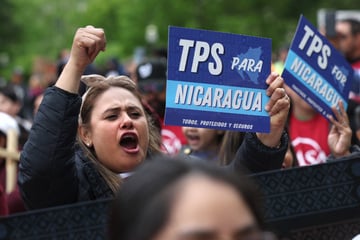Reparations and filling the gap in Black mental health services
Los Angeles, California - In an exclusive interview, TAG24 NEWS spoke with LA-based social worker and therapist Nakeya Fields on the importance of addressing Black mental health in reparations initiatives.

Nakeya Fields is a licensed clinical social worker and registered play therapist who specializes in addressing anxiety and trauma with art and restorative yoga.
She has owned the Therapeutic Play Foundation, an LA and Pasadena-based mental health non-profit, for the last 14 years. She has also served as a school counselor and Child Protective Services worker, navigating schools, foster care, and administrative systems to provide quality care to children and families.
Despite her vast professional experience, Fields found herself in her own mental health crisis soon after giving birth. When she was seven months pregnant, a car hit her vehicle from behind, resulting in a "traumatic" and scary pregnancy experience, she told TAG24 NEWS.
After her son was born, Fields was shocked to find herself – a mental health professional – experiencing anxiety and other difficulties.
It only upped her resolve to help others fight for fair and just care.
Experiencing neglect in the health care system
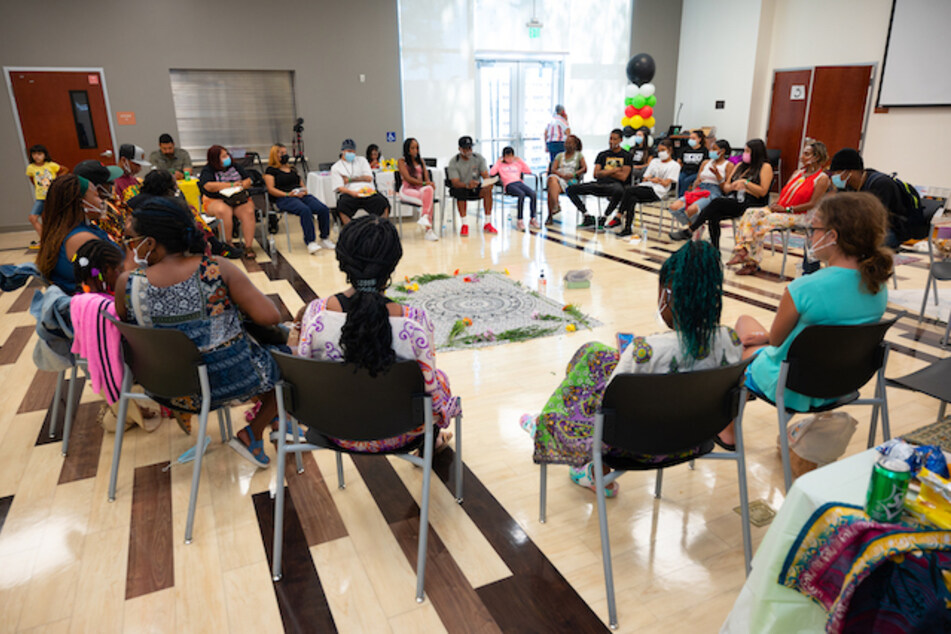
Fields said she was "unprepared" for the changes her body was going through after her accident, but when she consulted medical professionals, their response was anything but comforting.
"I was told by doctors constantly it was stress and I should just stop stressing out. First of all, how are you going to tell me to stop stressing out? The world is stressful and stressful things are happening in my life, and you're telling me the treatment is to stop stressing out," she recalled with outrage.
Having her own legitimate concerns dismissed opened her eyes to the need for centering Black maternal mental health and creating community-based opportunities for healing.
"I deserve as a Black woman to have a positive and healthy and joyous birth, just like any other ethnic group. But I literally have no control over it because even before I was born, my genes were encoded with trauma. My DNA has been changed by trauma over multiple generations and by the current trauma of interacting with systems that will kill us for arguing back, or literally kill us in medical settings," she said. "Imagine how many women are being killed by racism and blatant disregard of our pain, of our suffering, of our voice."
"When I think about reparations, this is the story I'm speaking to," she added.
Centering maternal health in reparations work
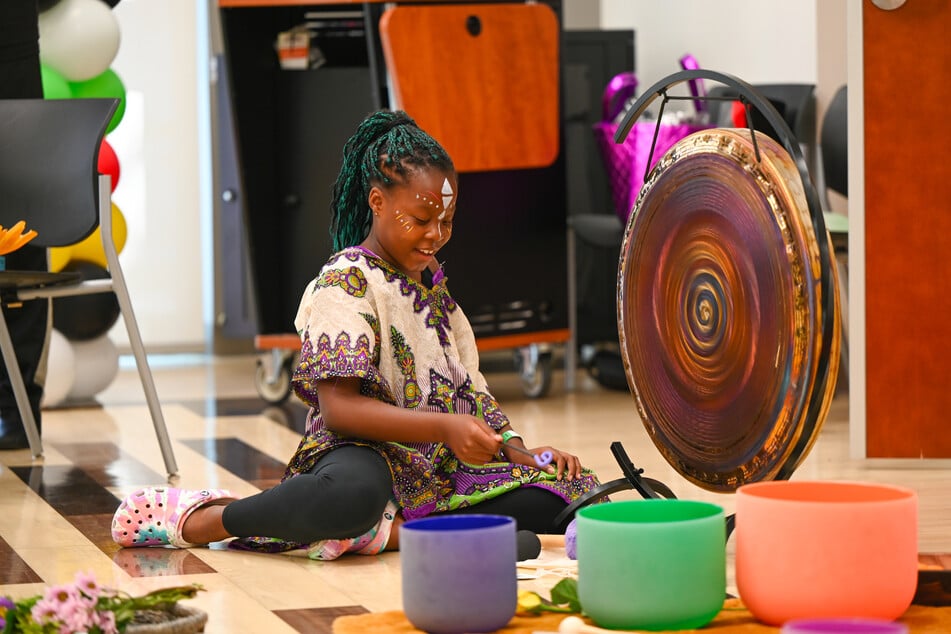
Fields is now working to address the issues she has seen and experienced in the health care system, saying she felt "tasked as a Black leader and a mental health professional to take the charge."
In her view, Black maternal health is key to repairing generational harms because mental health issues for Black children begin when they are still in the womb.
"When the mother is stressed out and depressed during pregnancy, it impacts the development of the brain of the children," Fields explained.
Up until age five is the critical stage for a person's development of resiliency, which she defined as "the ability for your brain or your spirit to recover from an injury and bounce back and choose the ability to keep moving, to have the intrinsic motivation to make better decisions for yourself, to even know there's a choice."
There are many structures in place that make having a stable family life and developing resiliency disproportionately difficult for Black Americans. Racial disparities in wealth, education, health care, the criminal justice system, and more can lead to cycles of trauma and mental health struggles.
That's why it's important to center Black women in movements toward healing, Fields explained: "If we're going to do any reparative action, it means we need to help the mothers have healthy pregnancies and births – survive the births. And we also have to help them have a good and healthy emotional well-being."
Identifying problems in the current mental health care system
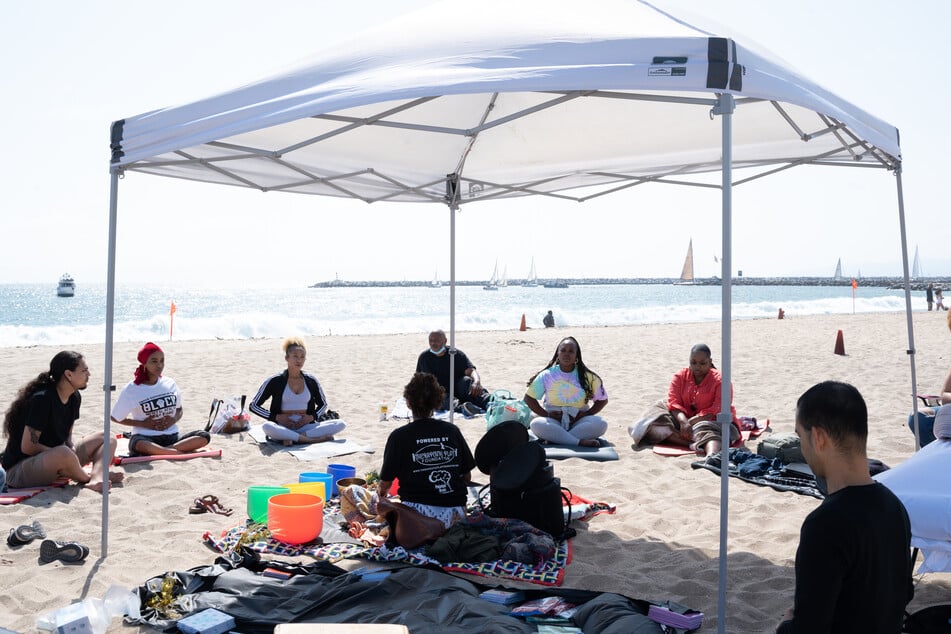
Despite the urgent need for better health care for Black women and families, there are many obstacles in place that make accessing those resources tricky.
"Even when we know we have trauma, when we try to get mental health care, it's intentionally difficult to access," Fields said.
For example, there are higher hurdles for Black practitioners and NGOs to receive recognition for insurance purposes, making it more difficult for patients to utilize their services. Fields also pointed out that often when a patient or client moves across state lines, insurance will no longer cover much-needed treatments.
Additionally, Fields believes there need to be changes in the way many doctors approach their role as health care providers. Recalling her own painful experience, she said medical providers shouldn't "just tell patients not to stress out," but should instead talk to them about alternatives and encourage them to contact a therapist.
"I think changing some of the rules and policies and procedures is a way to be reparative to Black people," Fields insisted. She added that there should be greater efforts to hire more Black mental health care providers and to remove existing barriers to health care access rather than downplaying concerns.
"We know the truth. Everybody else knows the truth. Stop gaslighting us. Tell us that it's the truth and racism exists and our bodies are impacted by it, and then create a health care strategy – an intentional, well-funded health care strategy with Black people at the front – to do something about this," Fields demanded.
Building community-oriented solutions
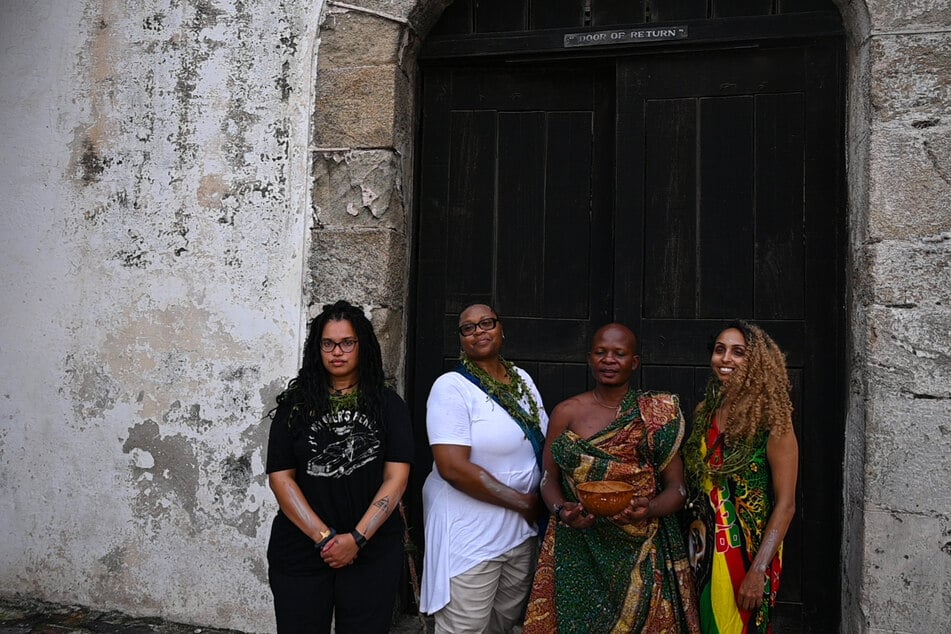
For Fields, filling the gap in Black mental health services involves working closely in community.
She currently serves as chair of the Black Mental Health Task Force, a coalition of people and organizations who directly provide or support mental health care for Black Californians.
"We try to invest in community-led, open, authentic conversations and awareness-building activities and campaigns," she said.
Those activities include outreach events that focus on breaking down the barriers to mental health care access as well as providing safe spaces for Black people to discuss mental health. Prospective patients can also reach out to the task force to find Black providers, as doing so can be difficult without additional support. The group also campaigns for changes to the health care system that would remove hurdles for NGOs that serve the Black community.
Going forward, Fields is calling not only on the state of California, but also on the federal government to address the structures that perpetuate trauma for Black Americans, and then deny them the care they need to heal. She demanded that the White House form a Black Mental Health Task Force dedicated to the issue.
The first step toward healing is formally acknowledging the harms that have been inflicted on Black Americans for generations, which the US government has so far failed to do. Telling the truth about the country's history can pave the way for real change, Fields said.
"That acknowledgement opens up the door to change, and then it's up to us to take that acknowledgement and run."
Cover photo: Courtesy of Nakeya Fields

